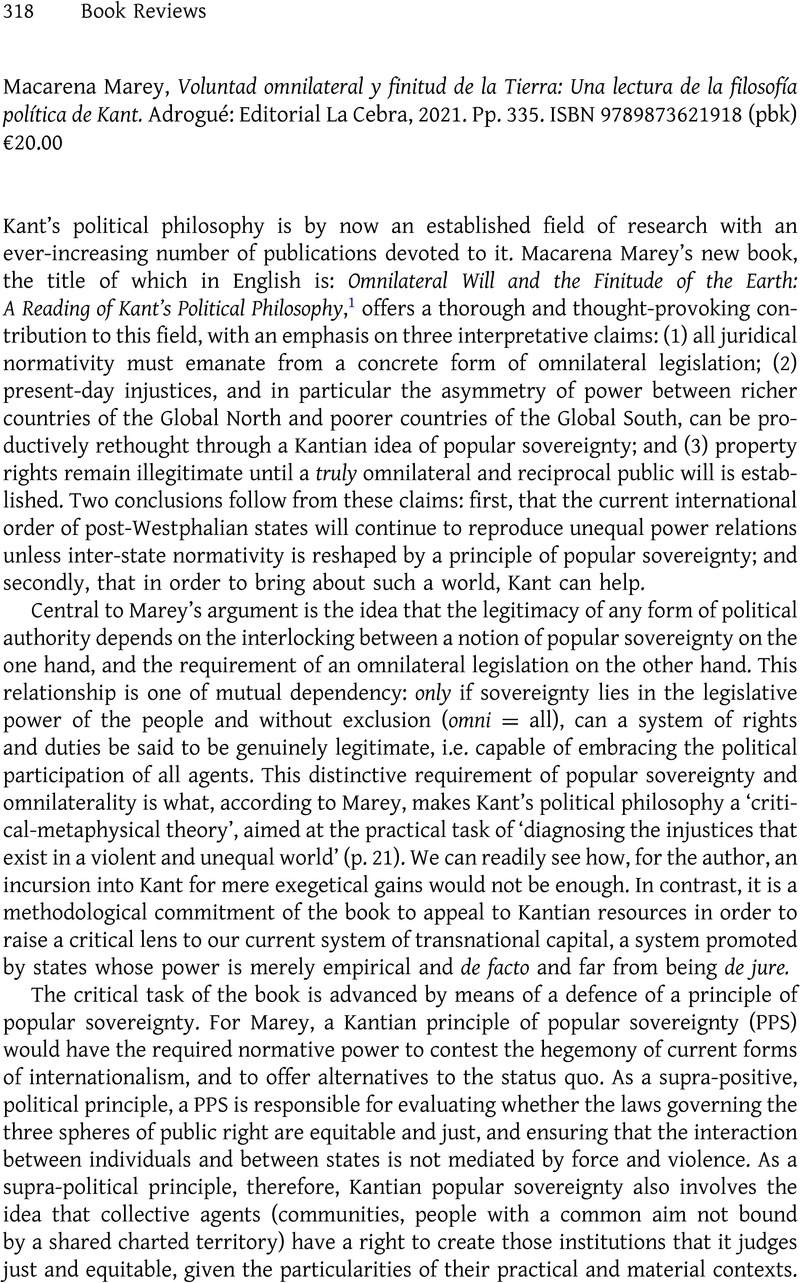No CrossRef data available.
Article contents
Macarena Marey , Voluntad omnilateral y finitud de la Tierra: Una lectura de la filosofía política de Kant. Adrogué: Editorial La Cebra, 2021. Pp. 335. ISBN 9789873621918 (pbk) €20.00
Review products
Macarena Marey , Voluntad omnilateral y finitud de la Tierra: Una lectura de la filosofía política de Kant. Adrogué: Editorial La Cebra, 2021. Pp. 335. ISBN 9789873621918 (pbk) €20.00
Published online by Cambridge University Press: 29 March 2023
Abstract
An abstract is not available for this content so a preview has been provided. Please use the Get access link above for information on how to access this content.

Information
- Type
- Review
- Information
- Copyright
- © The Author(s), 2023. Published by Cambridge University Press on behalf of Kantian Review
References
Note
1 All translations from Spanish into English are my own.


